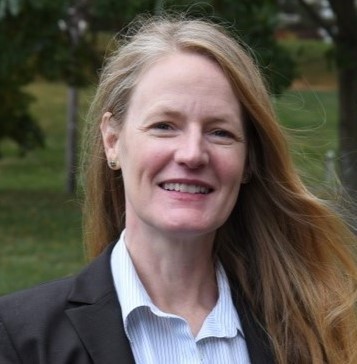Stephanie Hunter McMahon

Stephanie Hunter McMahon
Professor of Law, College of Law
513 College of Law Building
Areas of Interest: Legal History, Taxation
About
Professor Stephanie Hunter McMahon has taught courses in tax law and legal history at the University of Cincinnati College of Law since 2008, and while doing so has won two of the law school’s teaching awards, its faculty excellence award, and its award for scholarship.
To date, much of her scholarship explores the relationship between taxation and the public’s perception of taxation with respect to families and the application of administrative law to tax. Her interest in the development of tax policy led her to write Principles of Tax Policy for West’s Concise Hornbook Series. In the last two years, she has begun scholarship focusing on the tax treatment of disadvantaged groups, both women seeking abortions in states that do not provide access to care and the discriminatory tax treatment of inmate labor.
Her writings have been published in peer-reviewed journals, The Tax Lawyer (ABA journal), Florida Tax Review, and the Virginia Tax Review, as well as student-reviewed journals, such as Northwestern Law Review, Washington Law Review, and Michigan State Law Review. Professor McMahon received her J.D. from Harvard Law School and PhD in American history from the University of Virginia. Following law school, Professor McMahon practiced in the New York offices of Cravath, Swaine & Moore and Skadden, Arps, Slate, Meagher & Flom.
Education
BA, Oglethorpe University
JD, Harvard Law School
MA, University of Virginia
PhD, University of Virginia
Courses Taught
- Federal Income Tax
- Business Tax I (formation and distribution)
- Business Tax II (mergers, acquisitions, liquidations)
- Tax Policy
- American Legal History
Publications
Articles
- PRINCIPLES OF TAX POLICY, Concise Hornbook series (1st ed. 2017; 2d ed. 2018; 3d ed. 2023 forthcoming).
- “What Law Schools Must Change to Train Transactional Lawyers,” Pace Law Review (forthcoming).
- “Prison Work is Taxing and Should Be Taxed,” Tax Notes Federal (forthcoming).
- “Using the Tax System to Ease Some of the Dobbs Hardship,” Tax Notes Federal 176 (August 15, 2022) 1105-1114.
- “Freed from Prison and Unemployed: What Happens After Your Prison Job Ends?” Kentucky Law Journal 110 (2022): 739-768.
- “Teaching Tax Through Film: It’s Not as Crazy as It Sounds,” Pittsburgh Tax Review 19 (2022): 183-210.
- “Employment Taxes in Crisis: In Practice, Enforcement, and Insolvency,” The Tax Lawyer 75 (2021): 187- 232.
- “Inmates May Work, But Don’t Tell Social Security,” South Carolina Review 72 (2021): 757-782.
- “The Taxpayer Bill of Rights and the Right to Be Informed: The Positive or Negative Way You Look at It,” The Tax Lawyer 74 (2021): 195-230.
- “U.S. Inbound Employment Tax Matters: Windfall Elimination Meets Totalization,” Tax Notes International (2020) (With Galina Seregina).
- “Classifying Tax Guidance According to End Users,” The Tax Lawyer 73 (2020): 245-297.
- “Tax as Part of a Broken Budget: Good Taxes are Good Cause Enough,” Michigan State Law Review 2018: 513-586.
- “Pre-enforcement Litigation Needed for Taxing Procedures,” Washington Law Review 92 (2017): 1317-1405.
- “The Perfect Process Is the Enemy of the Good Tax: Tax’s Exceptional Regulatory Process,” Virginia Tax Review 35 (2016): 553-613
- “Should Divorce Be More Taxing?: Structuring Tax Reduction to Reduce Inequality,” Indiana Journal of Law & Social Equality 3 (2015): 74-125 (symposium).
- “Gendering the Marriage Penalty,” in Controversies in Tax Law: A Matter of Perspective (edited by Anthony Infanti, 2015): 27-46.
- “Bundle of Confusion for the Income Tax: What It Means to Own Something,” Northwestern Law Review 109 (2014): 959-88.
- “What Innocent Spouse Relief Says About Wives and the Rest of Us,” Harvard Journal of Law and Gender 37 (2014): 141-84.
- “An Empirical Study of Innocent Spouse Relief: Do Courts Implement Congress’s Legislative Intent?” Florida Tax Review 12 (2012): 629-707 (peer review).
- “Political Hot Potato: How Closing Loopholes Can Get Policymakers Cooked,” Journal of Legislation (Notre Dame) 37 (2012): 142-178.
- “To Have and to Hold: What Does Love (of Money) Have to Do with Federal Tax Filing?” Nevada Law Journal 11(2011): 718-758.
- “London Calling: Does the U.K.’s Experience with Individual Taxation Clash With the U.S.’s Expectations?” St. Louis University Law Journal 55 (2010): 159-220 (symposium).
- “California Women: Using Federal Taxes to Put the ‘Community’ in Community Property,” Wisconsin Journal of Law, Gender, & Society 25 (2010): 35-72.
- To Save State Residents: States’ Use of Community Property for Federal Tax Reduction, 1939-1947, 27 Law & Hist. Rev. 585 (2009)
- A Law with a Life of Its Own: The Development of the Federal Income Tax Statutes through World War I, 7 Pitt. Tax Rev. ___ (2009)
- You Pay for What You Get: The U.S. Virgin Islands, 1917-1936, 41 J. Caribbean Hist. 109 (2007)
Essays and Other Publications
- (Un)intended Consequences of Death Tax Repeal, The Hill, April 29, 2015, available at http://thehill.com/blogs/congress-blog.
- National Public Radio, Getting Married Can Cost You at Tax Time, April 6, 2015, available at http://www.marketplace.org/topics/economy/getting-married-can-cost-you-tax-time.
- “Limited In Its Sphere, Infinite In Its Power,” in Teaching Legal History: Comparative Perspectives (edited by Robert Jarvis, 2014): 137-40.
- “Fiscal and Budgetary Policy,” “Securities and Exchange Commission,” “United States Women’s Bureau,” and “Social Welfare Policy,” in Encyclopedia of U.S. Political History, 1921-1945, Volume 5, (MTM Publishing, 2010).
- “Tracking Tracking Stock” in Tax Strategies for Corporate Acquisitions, Dispositions, Spin Offs, Joint Ventures, Corporate Reorganizations and Restructurings 2002, written in cooperation with Stuart Finkelstein and Joseph Todd.
- Book Review of More Guns, Less Crime: Understanding Crime and Gun Control Laws, by John R. Lott, Harvard Journal on Legislation 37 (2000): 293-306.